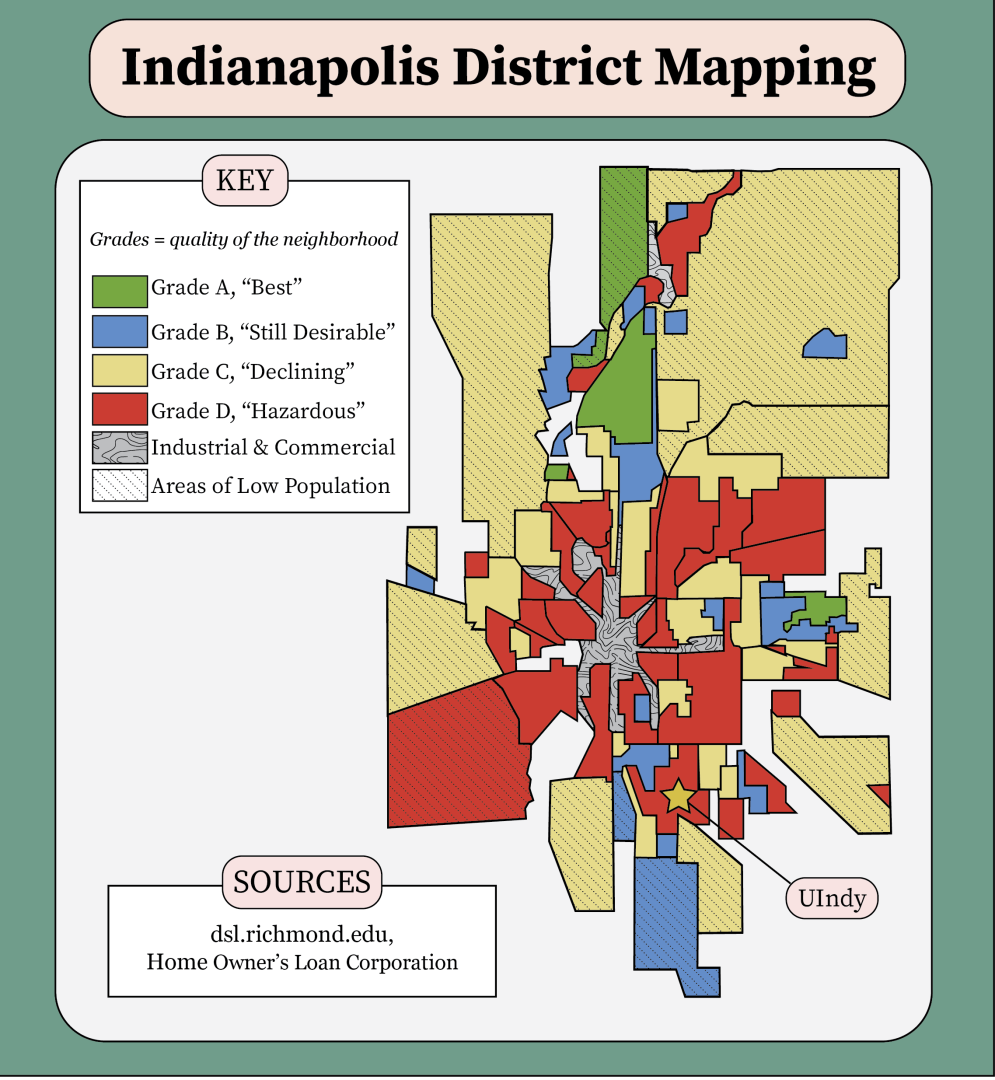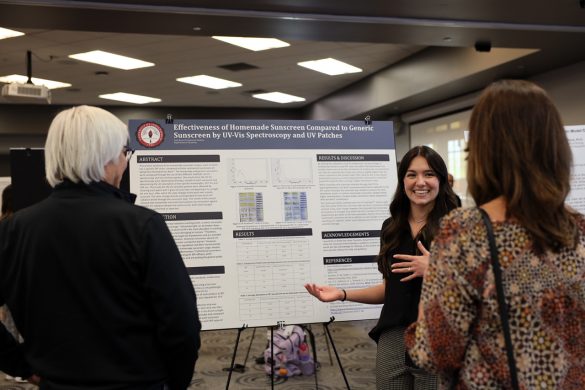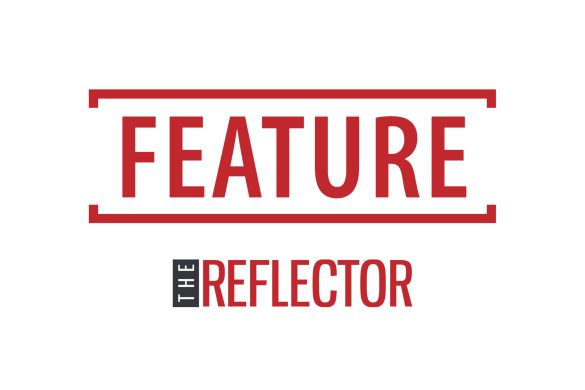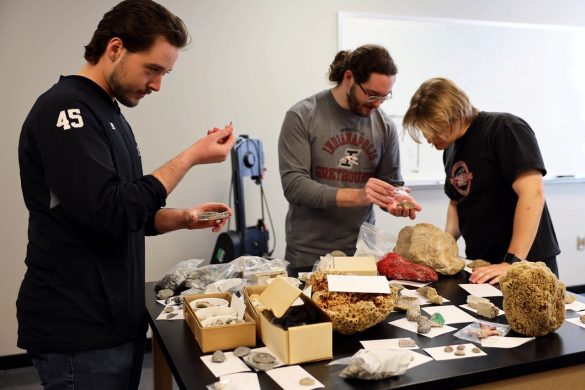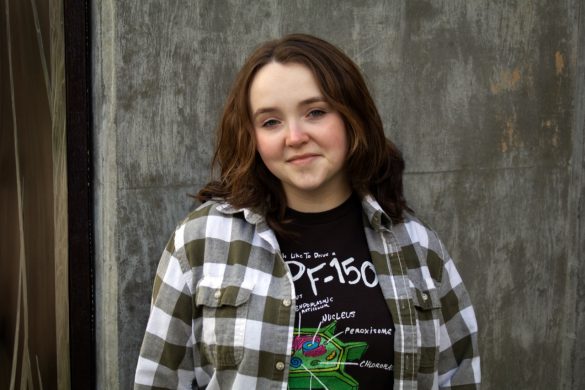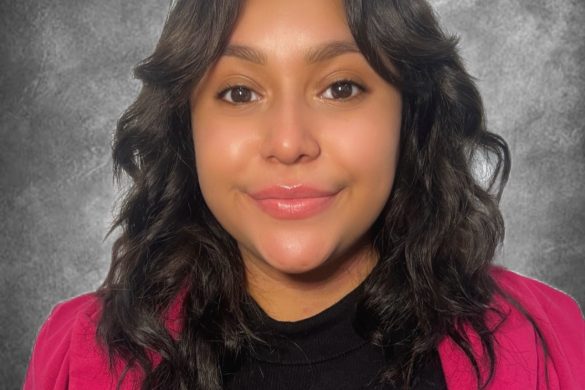The University of Indianapolis Aspiring Educators registered student organization hosted a webinar titled “Redlining and Sundown Towns.” The webinar featured guest speaker and U.S. History and Ethnic Studies teacher at Fishers High School Matt Bockenfeld, according to senior English and secondary education major Ali Viewegh. The webinar included Bockenfeld discussing how redlining affects school districts and students, according to Viewegh, and how sundown towns are effects of segregation like redlining.
Redlining, according to Cornell University, is defined as a discriminatory practice that consists of the systematic denial of services such as mortgages, insurance loans and other financial services to residents of certain areas based on their race or ethnicity. The history of redlining begins with the U.S.’s response to the Great Depression in the 1930s, according to Department of History & Political Science Chair, Professor of History and Director of the Institute of Civic Leadership and Mayoral Archives Ted Frantz. It was harder for people of color to get loans because of the New Deal, a program aimed at creating lending standards for economic reform, according to Frantz.
“American race and American class are deeply tied together. And so most of those redlined areas and American urban cities happen to be in neighborhoods where people of color were predominantly living,” Frantz said. “And people of color, where you saw the most severe discrimination, would be African Americans.”
According to an article published last year by the Washington Post, Bockenfeld addressed Indiana Republican Sen. Scott Baldwin at a Senate committee hearing about Senate Bill 167, a bill that aimed to prohibit public K-12 schools from teaching students that “any sex, race, ethnicity, religion, color, national origin, or political affiliation” is inherently superior, inferior, racist, sexist or oppressive, according to the Indianapolis Star.
Viewegh said Bockenfeld was chosen as speaker for the webinar after a UIndy AE board member suggested he speak after he gave a lecture in one of her classes where he also discussed redlining and sundown towns. Bockenfeld also gives lectures at other universities where he discusses race in America and has published writings that have been incorporated into undergraduate education courses.
Sundown towns, according to Frantz, are proof that by statute and custom, if someone was a person of color caught in the town before sundown, racial violence could result. There are a number of communities in Indiana who had that reputation going into the 1950s or 1960s before the Federal Civil Rights Act of 1964 that were sundown towns, Frantz said.
According to Viewegh, sundown towns are a kind of product of redlining due to the segregation in districts and communities. Viewegh said Bockenfeld was talking about Indianapolis as well and where certain groups of people can and can not live based on class level, background and whether someone is a person of color.
“I think those terms just go hand-in-hand; like you can’t talk about one without the other,” Viewegh said.
The webinar is part of a three part series the UIndy AE are facilitating, according to Viewegh. The first part was a panel featuring three UIndy professors discussing microaggressions and the second part was the Redlining and Sundown Towns webinar. The third and last part of the series will be a discussion about the Deferred Action for Childhood, according to Viewegh.
